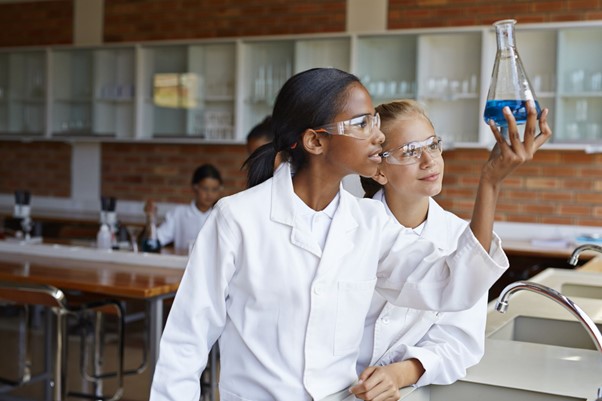
Where are tomorrow’s scientists?
Teachers can still ignite passions and ‘turn on’ the next generation of researchers
Jackie Flaherty is Director of STEM at Chipping Campden School, Gloucestershire. She was awarded the Teacher of Physics Award by the Institute of Physics in 2020
18 January 2021 – As a science teacher, I’ve always strived to inspire the students in my school to love science and consider it as a future career. This seems particulary relevant at the moment as the challenges that we face due to COVID-19 and climate change highlight the importance of the need to nurture brilliant scientists. During this past year, I wonder if the current pandemic will entice more students to become scientists, to develop future vaccines.
IRIS project requires very little commitment and is accessible to all schools – regardless of their location, income stream, specialism and facilities.
COVID-19 has brought home the importance of science learning. As a science teacher, you’d expect me to advocate for more science in schools. But in these times, when scientists are being relied upon more than ever to provide solutions to the threat from coronavirus and the impending climate crisis, perhaps I won’t be the only one arguing that now is the time to nurture – not cut – science in our schools if we are going to maintain the kind of talent pipeline which has made successes like the Oxford vaccine a possibility.
Building science knowledge is key, it provides the foundation for the development of the scientists of the future. The current science curriculum is packed with content so teachers have to plan carefully to ensure that meaningful investigative work is integrated with the subject matter knowledge, as this can get students really fired up about discovering something new.
At my school, we have sought to enhance the curriculum by getting involved in live research projects with the Institute for Research in Schools (IRIS). The charity links schools with leading institutions and universities, giving students from all backgrounds the opportunity to participate in authentic research. Their programmes span everything from Cosmic Mining, where students learn to examine and classify stars, to the Treezilla project, where young people learn to collect vital data about trees and contribute to an ambitious project to map all of Britain’s trees while getting up and personal to the impact of climate change on the ecosystem.
My students have chosen IRIS as an enrichment activity and we currently have 20 Year 12 students working on a range of projects including Cosmic Mining, Genome decoders, Earth Observation and one student has even submitted a proposal for an original research project using a scanning electron microscope which IRIS will loan to the school! The opportunity to engage in such exciting research while still at school is just what is needed to ignite passions and ‘turn on’ the next generation of researchers we’ll all rely on to solve some of these intractable problems. As much of the work is done independently the students develop skills which will help with the transition to University study. They produce academic posters and present their findings at national conferences – again this builds their written and verbal communication skills which will stand them in good stead for the future too. The projects can also be used as the basis of an EPQ or a Gold CREST Award.
We are all under incredible pressure at the moment and it is understandable that the prospect of taking on something ‘new’ may be down your list. Please take my word that joining an IRIS project requires very little commitment and is accessible to all schools – regardless of their location, income stream, specialism and facilities. As well as inspiring our students, my collegaues and I feel enthused by being part of this project as it feeds our curiosity too. Introducing a research project needn’t be another burden and it is a real joy to see the spark of creativity, curiosity and confidence that live science can ignite.